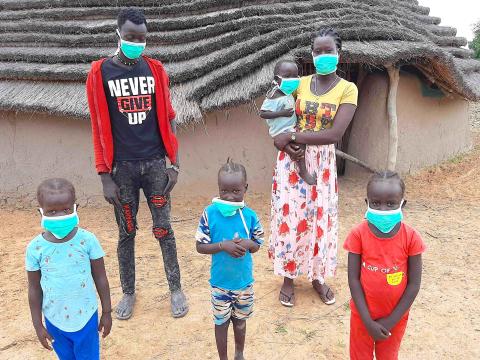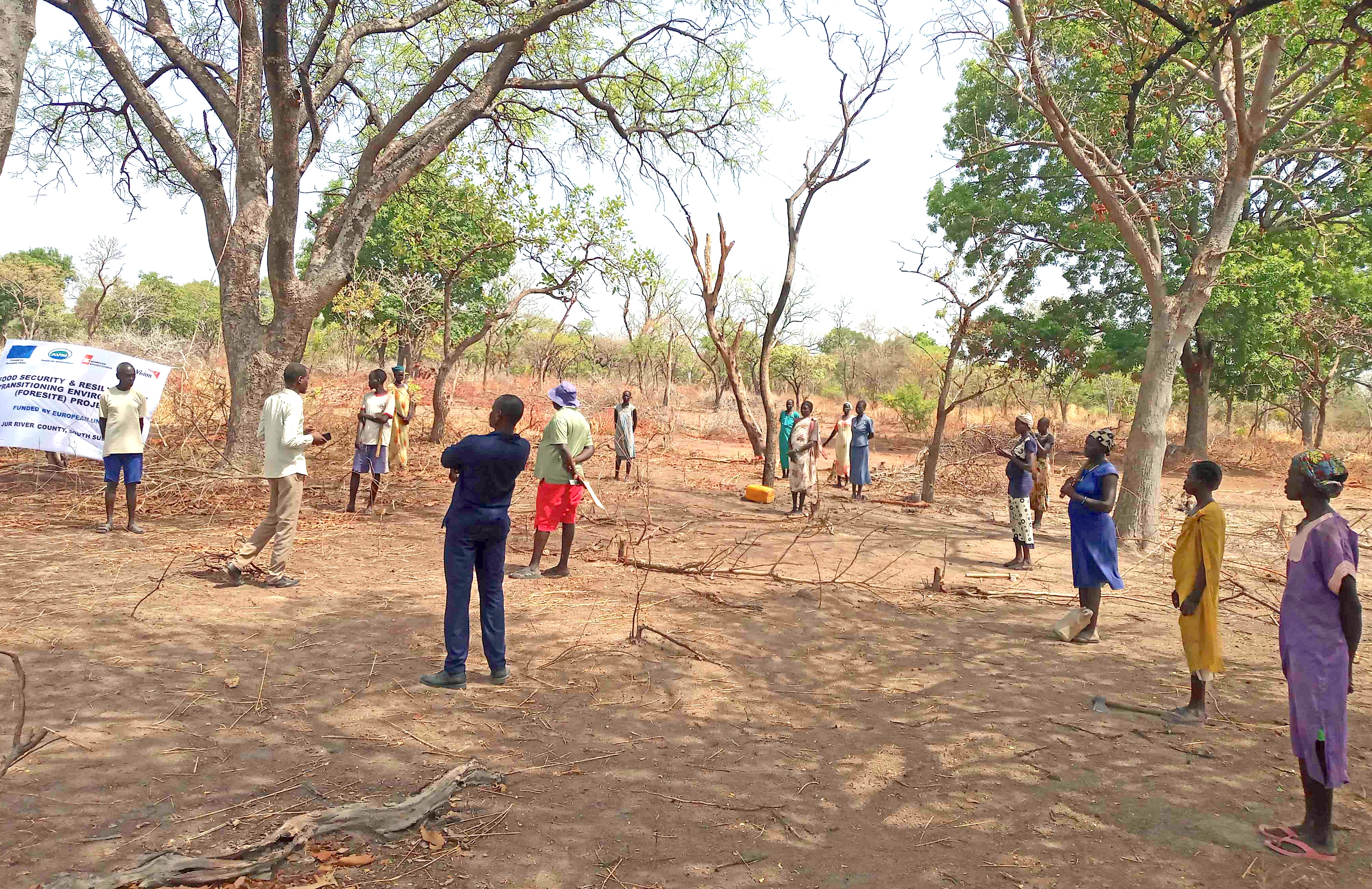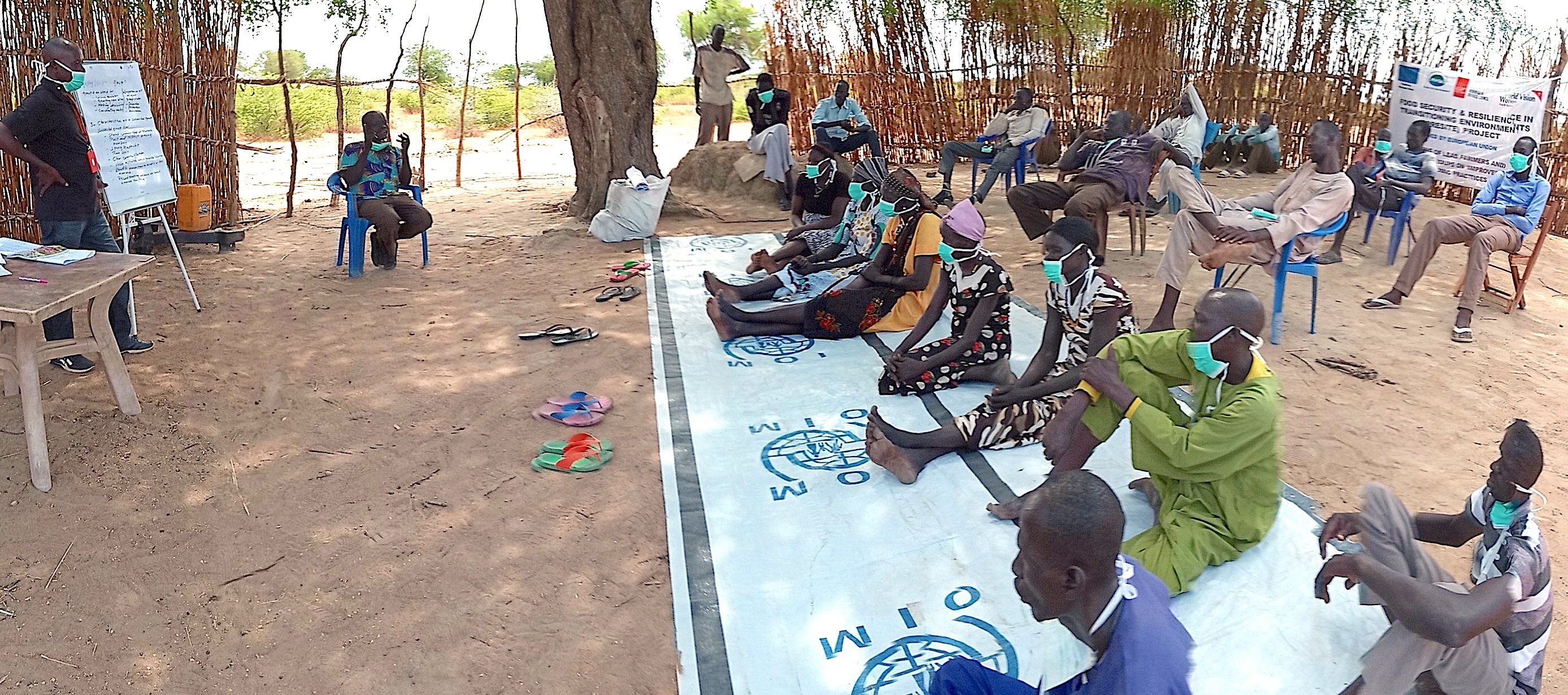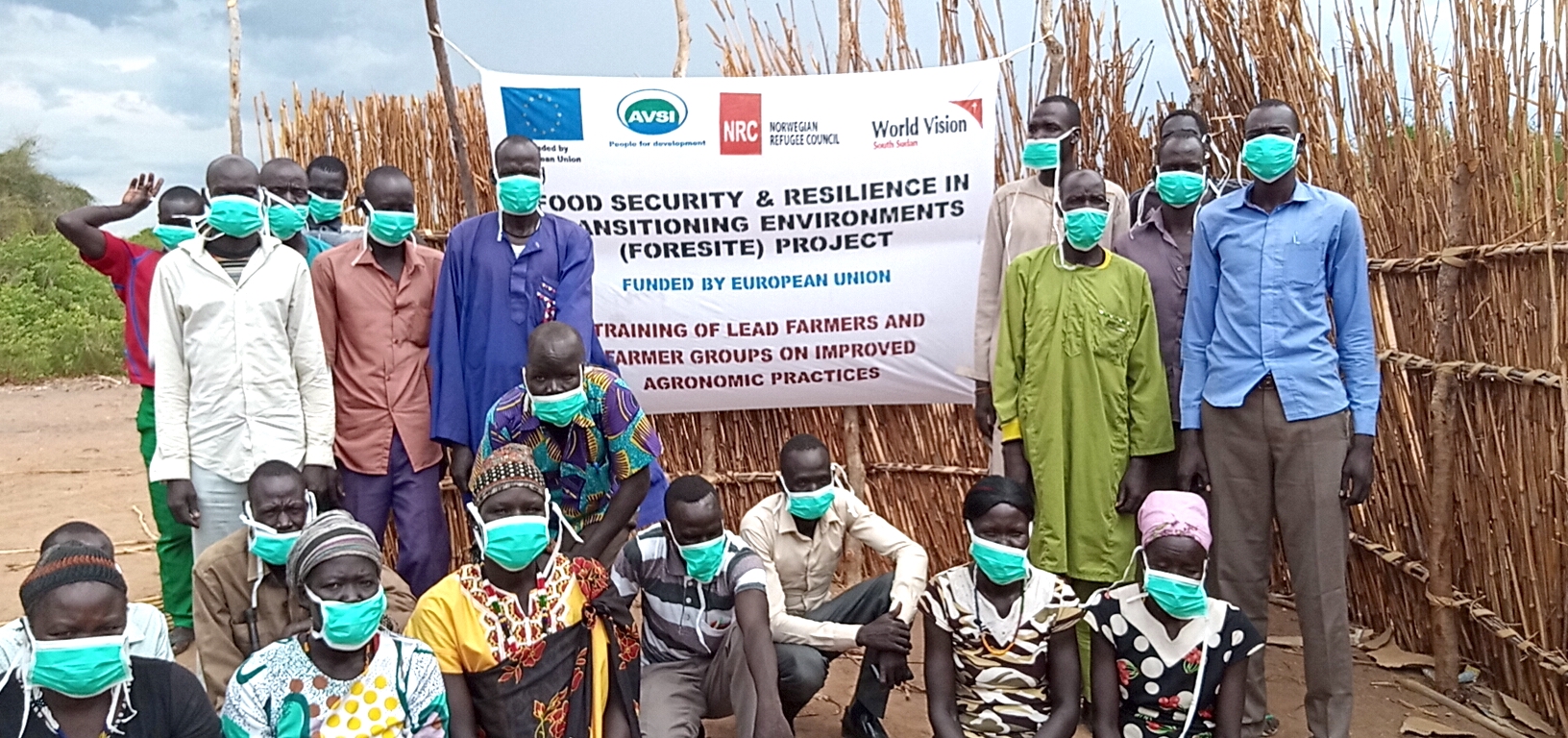EU-funded FORESITE Project delivers crucial assistance for South Sudan’s 2,300 farmers amid COVID-19

An estimated 2,300 farmers in South Sudan were supported by World Vision and partners AVSI Foundation and the Norwegian Refugee Council (NRC) with different agricultural inputs to help increase agricultural production and food availability and ensure they are equipped with much-needed resources to adjust to the challenges posed by the Covid-19 pandemic.
World Vision’s Food Security and Resilience in Transitioning Environments (FORESITE) Project funded by the European Union in partnership with AVSI and the NRC started in August 2019 to address the causes of low resilience in Greater Bahr el Ghazal State.
The support provided during the first year of the project implementation includes 97 ox ploughs, and over 1.000 small farm implements like hoes, rakes, watering cans, treadle pumps, among others. In addition, 20 metric tons of groundnuts seeds, 2.5 metric tons of sorghum seeds and at least 3,900 sachets of assorted vegetable seeds including purslane, okra, tomato, eggplant, kale, amaranthus, watermelon and onions were provided to the farmers.

The vegetable seeds were provided to 37 mother garden groups and the seeds of groundnuts and sorghum to the farmer groups. As the COVID-19 pandemic continues to impact South Sudan, World Vision and partners have been mobilizing the resources to respond to the pandemic and help the farmers adjust to the new working environment.
“This is my first time to witness many youth and women are willing to be involved in a project like FORESITE in Twic County. The training on improved agricultural farming especially the use of ox-plough is a new technique for us. With the seeds and tools provided to us I was able to farm in 5 feddans and three feddans with the group”, says Akuac Mayuat Anguc, a mother of five children.
Tesfu Tesfay, the FORESITE Project Director says, “In addition to the challenges on the ground, low skills and inadequate inputs have affected agriculture production in South Sudan. Adding the constraints that the pandemic brought to farming communities, small-holder farmers, especially women, are the hardest hit economically.
With improved farming techniques and trainings even during the pandemic, I am able to expand my farm and with the group. I appreciate the support of World Vision, AVSI and NRC to us through the project.
Akuac adds, “With improved farming techniques and training activities even during the pandemic, I am able to expand my farm and with the group. I appreciate the support World Vision and partners have provided us through the project. Their coordination with the county and state health teams to keep us aware of coronavirus measures helped a lot because we know what to do and where to find support.”
With the pandemic, this project has become even more critical as signs of the pandemic’s destructive impact on the economy and food security situation of smallholders in South Sudan are being felt. Accordingly, to ensure the project continuity while preventing the virus spread proper safety and protective measures were integrated within the project, including the provision of personal protective equipment such as face masks, soaps, and disinfectants for staff and set-up of handwashing stations in key locations.

“In a country where over six million people are food insecure, adjusting the existing programming and continuing our food security and livelihoods interventions can help strengthen the communities’ resilience and capacity to provide food for their families, especially the children”, explains Tesfay further.
World Vision’s Project Manager Kon Awet Awet shares that, “During the last six months, the project has demonstrated that communities could be empowered and their food security improved. The partnership with government agencies is crucial in this critical time, ensuring that the projects continue even at the time of the pandemic.”
In collaboration with the government county health officers, the project team has been participating in the COVID-19 awareness campaign sharing prevention messages in the communities to help prevent the spread of the virus.
The timely distribution of the farm tools, seeds and the conduct of training activities on improved agronomic practices along with the tailored extension services have enabled small-holder farmers to properly prepare their farms in time for the planting season as one of the key steps on the way to ensure their households are food secure.

Note: Akuac Mayuat Anguc and her children in main photo.
Photos and prepared by Kon Awet Awet, Project Manager and Tesfu Tesfay, Project Director